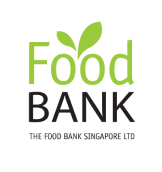I did my research online to find out the food items needed and came up with a shopping list. I managed to buy things like peanut butter, noodles and canned food. It was very fun and meaningful!” – Elsa, 9 yrs old.
Elsa Tan has been helping deliver monthly food rations with her family since she was 6 years old. She attended FBSG’s Juniors Club session last year where she developed a deep understanding of food wastage and food insecurity.
Elsa sold cookies as a Brownie for her schools Girl Guides and pledged to donate a dollar for every tin of cookies she sold. Elsa baked cookies and pledged to donate a dollar for every tin of cookies she sold. When she came across FBSG’s Bank Box at the Wisteria Mall, she decided to go shopping for our beneficiaries, guided by FBSG’s monthly Warehouse Wish list.
She acted as the perfect role model for her younger brother and enrolled him to donate his pocket money as well.
Junior Foodbanker, Elsa believes that by sharing her story widely, she will inspire other young leaders to drive change within their communities. She hopes educational institutes will hold regular food donation sessions to help reduce food wastage – a cause that strongly resonates with her. She is keen to join our warehousing and bundle packing sessions soon to continue to support our mission in every way possible.
There really is no #FoodWarrior quite like our Junior Foodbanker, Elsa!


